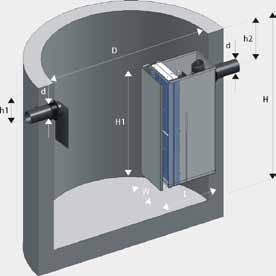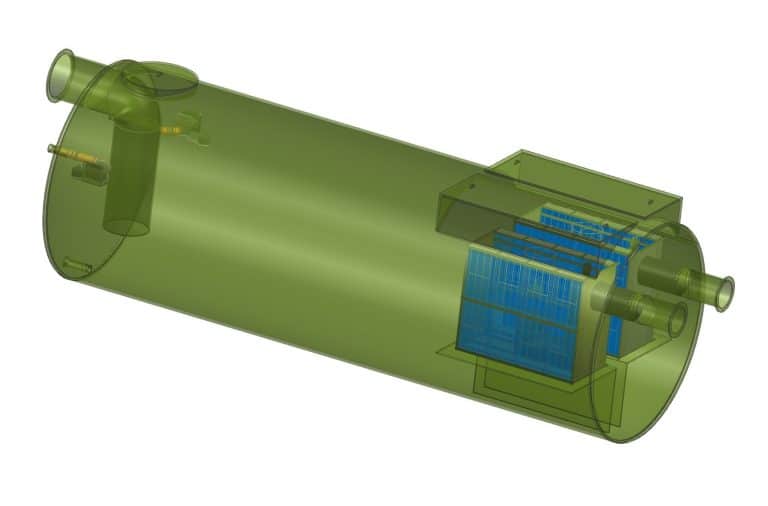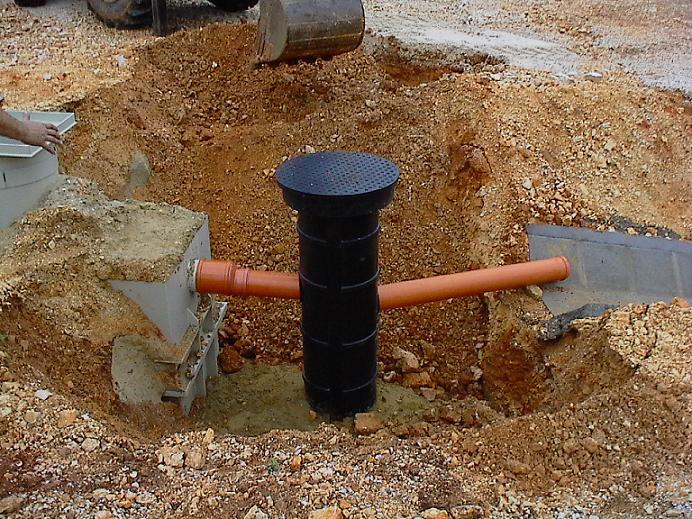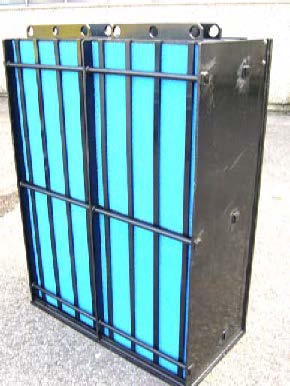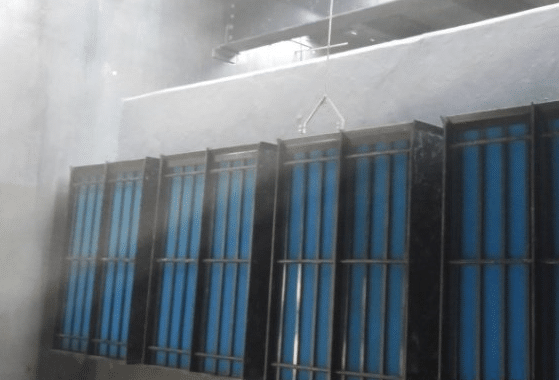Do you know How to Maintain an Air Compressor Oil Water Separator? or that ignoring your air compressor oil water separator can hurt your work efficiency and follow environmental rules? The air compressor oil water separator (OWS) is key to keeping air clean by separating oil from water. By keeping it well-maintained, you can make it last longer and save up to 30% on energy costs. This article will show you how to keep your oil water separator in top shape. We’ll cover important maintenance tips to boost your air compressor’s performance and protect your investment.
Key Takeaways
- Regular maintenance can improve your oil water separator’s efficiency by up to 30%.
- Without proper care, condensate can contain up to 1 gallon of water for every 1000 cubic feet of compressed air.
- Scheduled inspections should occur every 3-6 months, depending on usage and environmental conditions.
- Changing filters regularly can help maintain energy efficiency.
- Compliance with regulations, like the EPA’s Clean Water Act, is critical to avoid substantial fines.
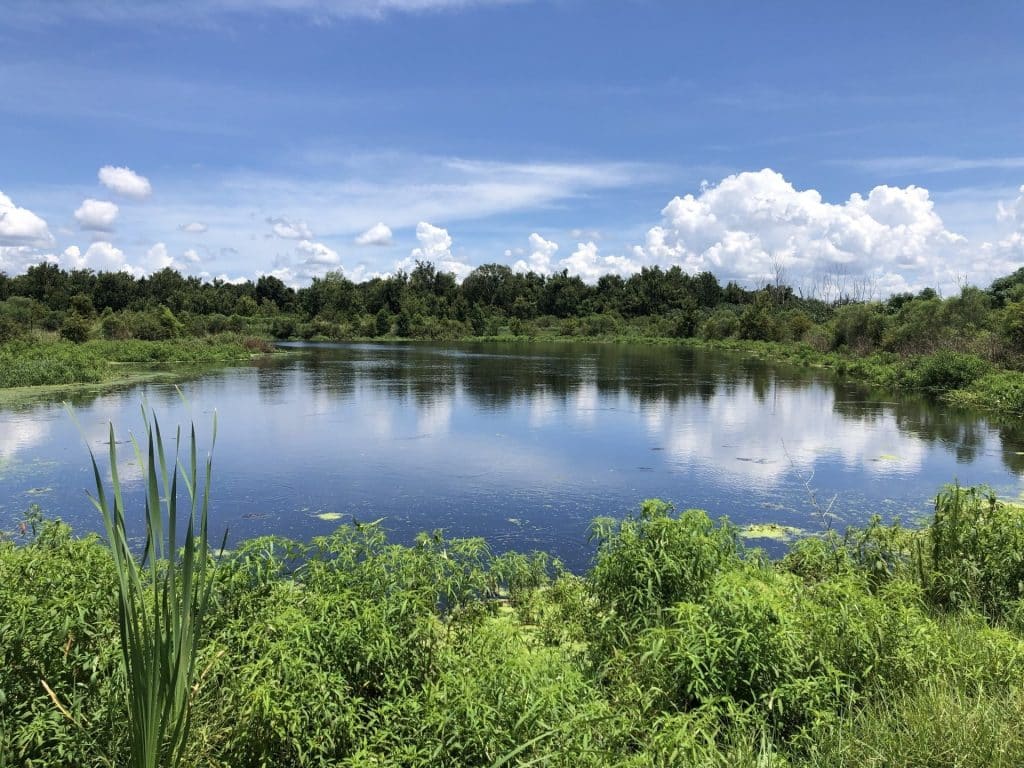
Understanding the Function of an Oil Water Separator
An oil water separator is key for air compressors to work well and follow environmental rules. It removes oil and grease from water, keeping air compressors and the environment safe.
What is an oil water separator?
An oil water separator is a special device. It takes oil and other harmful substances out of water from air compressors. Air compressor water often has too much oil, but the separator fixes this by using filters and other methods.
Key components of the separator
The main parts of an oil water separator are filters, coalescing media, and drainage systems. These parts work together to separate oil from water. Keeping them in good shape is important for the air compressor to run smoothly.
Importance of separation efficiency
How well the separator works is very important. A good separator can make sure the water is very clean. This helps avoid big fines and keeps the air compressor running longer.
Importance of Regular Maintenance
Regular maintenance of an air compressor, like the oil water separator, is key for top performance and long life. Following best practices in air compressor maintenance boosts system efficiency. Proper care of the oil water separator cuts down on expensive repairs and saves energy, improving overall efficiency.
Benefits of maintaining your OWS
Keeping the oil water separator in good shape offers many benefits. Better separation means higher quality output, reducing the risk of breaking rules. Regular checks can boost energy efficiency by 20% and prevent safety issues, with 90% of moisture problems solved.
Following maintenance advice can also make your equipment last longer. This means a good return on investment over time.
Impact on compliance with discharge limits
Sticking to a strict maintenance plan for the oil water separator is vital for meeting environmental rules. Regular checks and good separator management cut down airborne pollutants by up to 99.9%. This boosts compliance and avoids expensive fines.
It also keeps facilities within legal limits, helping the environment and keeping costs down.
Recommended Maintenance Schedule
Having a set maintenance schedule is key for your air compressor system’s best performance. Regular maintenance boosts efficiency and extends your equipment’s life. It also helps catch problems early, avoiding expensive fixes and downtime.
Daily checks to perform
Every day, you should drain condensate from the air receiver tank and check oil levels. Look for leaks too. These steps are vital for keeping your compressor running smoothly. Make sure your team knows how to do these tasks right and safely.
Weekly and monthly maintenance tasks
Weekly, drain condensate from both tanks and check the oil. Monthly, give your air compressor a thorough clean and inspection. This keeps dirt away and prevents bigger problems.
Change air compressor filters every 1,000 to 2,000 hours, depending on use. Also, check condensate drains, drain valves, and belt tension monthly. Following these tips keeps your compressor running smoothly.
Cleaning the Coalescing Media
Keeping your air compressor separator in top shape is key. Cleaning the coalescing media is a big part of this. It helps remove water and oil from the air. Using the right cleaning methods can make your equipment last longer.
Steps for effective cleaning
To clean the media, first take it out of the separator. Use a spray wash with the right cleaners to get rid of dirt. Make sure it dries completely before putting it back. This stops moisture from messing with how well it works.
Importance of reusable coalescing media
Choosing reusable coalescing media is smart. It saves money and keeps your separator working well. Companies like Freytech make media that can be cleaned and used many times without losing quality. Regular cleaning keeps it working great and shows the value of taking care of your equipment.
Monitoring Separation Efficiency
Keeping air compressor systems at top performance is key. Regular checks help meet environmental rules. It’s important to follow air compressor maintenance tips.
To check for 5 PPM efficiency, collect condensate samples. Then, use water testing kits to analyze them. This step is critical for getting accurate results that show how well the system is working.
How to test for 5 PPM efficiency
To see if your system hits the 5 PPM mark, take water samples often. Use water testing kits made for this purpose. They give you precise oil content readings.
Checking the oil water separator’s performance helps you know if it’s working right. This info helps you make the needed fixes or tweaks. It makes the system work better.
Identifying issues with trace amounts of oil
Seeing oil in the water means your system isn’t doing its job well. It’s important to watch for this closely. Catching problems early can save you from big repair bills.
Fixing oil issues quickly helps keep the system running smoothly. It also cuts down on maintenance costs. This means your system lasts longer and meets environmental rules better.
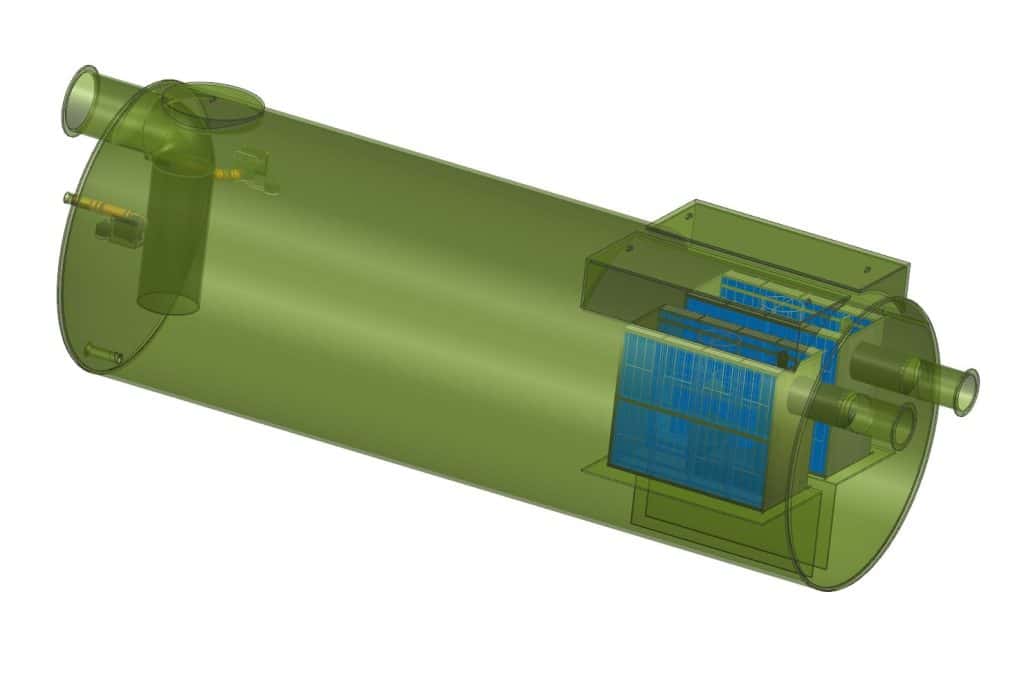
Utilizing the Optional Oil Skimmer
Adding an optional oil skimmer boosts your oil water separator’s performance. It automates oil removal, ensuring top-notch separation. This aligns with key air compressor separator care practices.
How the oil skimmer works
Oil skimmers collect and drain oil into a container. There are different types, like tube, belt, disk, and drum skimmers. Each is made for certain uses.
Tube skimmers are small and great for small sumps. They handle low fluid levels and avoid debris. Belt skimmers are good for tight spaces, making them ideal for narrow pits.
These skimmers can remove up to 99.7% of oil. This helps keep fluid systems sustainable.
Benefits of automated oil removal
Using skimmers saves time and cuts down on labor costs. The automated process also makes systems last longer and work better. Choosing the right skimming media is key to effective oil removal.
For example, disk skimmers might not work well at low fluid levels. Weir skimmers, on the other hand, can pick up more coolant. Companies should pick the best skimmer for their needs, with advice from experts.
Troubleshooting Common Issues
Fixing problems quickly is key to keeping an oil water separator running well. Some signs show the system isn’t working right, needing a closer look and fixes. Knowing these signs and fixing them can really boost performance.
Signs of ineffective separation
Signs of trouble include oily discharge that keeps coming and system not working as it should. If the output pressure is off, between 90 to 110 PSI, it can hurt the system’s performance. Watching for these signs, like pressure drops, can help find issues.
Also, if the system isn’t cooling right, it might get too hot. This can raise the outlet temperature or cause overheating.
Solutions for common problems
Fixing air compressor issues needs a smart plan. Checking the system every three months can catch oil loss and clogged filters early. These issues can cut efficiency by up to 20%.
Make sure to clean or swap out filters, adjust flow rates, and use the right lubricant. Following best practices for air compressor maintenance is important. Replacing old parts is also key to keeping things running smoothly.
Keeping track of problems helps make maintenance better. This can make the air compressor system more reliable and efficient.
Best Practices for Oil Water Separator Use
Using oil water separators right means following some key steps. First, make sure it’s installed correctly. Place it as close to the air compressor as you can. This way, contaminants like water and oil are caught more easily.
Also, keep up with air compressor maintenance. This helps the separator work as it should.
Proper installation tips
When setting up an oil water separator, check the pressure and temperature. Watch these closely to keep it running well. Also, design the installation to help remove moisture.
This design choice boosts system performance. It also helps meet environmental rules and lowers contamination risks.
Operating conditions to maintain efficiency
For the separator to work best, do regular checks. Look at the coalescing media and oil level. Make sure the oil level is easy to see when the compressor is on.
Training operators on oil water separator best practices is key. It keeps performance steady and meets rules. This effort saves money and cuts down on maintenance needs.
Freytech Inc. Solutions for OWS Maintenance
Freytech Inc. is a top name in air compressor maintenance. They offer advanced products for oil water separators (OWS). Their solutions use the latest coalescing technology and reusable media.
This technology boosts separation efficiency. It also helps meet strict environmental standards. This makes operations more responsible.
Freytech provides support through training and maintenance advice. These resources help keep air compressor systems running well. Following Freytech’s advice can prevent expensive repairs later.
If you want to upgrade your maintenance or explore new options, Freytech is a reliable choice. For more information or help, contact Freytech at +1 (305) 372-1104.




